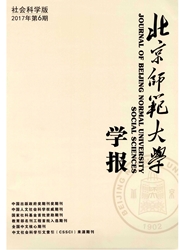

 中文摘要:
中文摘要:
父母卷入子女教育,无论对子女的成长,还是对整个社会的发展都具有重要的意义,一直备受重视。20世纪60年代以来,研究者开始对父母卷入孩子教育进行实证研究,父母卷入教育逐渐成为心理学、教育学、社会学等多学科交叉研究中的一个重要领域。40多年来,研究者从学业、认知能力和社会性发展等角度揭示了儿童发展与父母卷入教育之间的关系,并从教师、强调父母监控、儿童主动性等多个角度提出了不同的父母教育卷入的结构。为描述父母教育卷入的产生和作用机制,HooverDempsey和Seginer分别提出了突出微观过程的父母教育卷入多水平模型和从宏观、静态层面认识各种影响因素的生态系统模型。此外,研究者还从学校和家庭两个角度提出了促进父母教育卷入的有效途径。本文对这些研究进展进行综述,并从加强纵向追踪研究、重视比较研究和更多开展中国化研究三个方面,指出了父母教育卷入研究未来应该努力的方向。
 英文摘要:
英文摘要:
It has been highly estimated ever since the ancient for parents to involve in children's education, both for children's growing and for the advancement of the whole society. The present survey suggests that, after 1960s, researchers have turned their interest to empirical studies of the issue in question. These include the relation between children's psychology develophent and learning scores on the one hand and parents' involvement on the other, the structures of parent involvement and the theoretical models, and others, which have witnessed rich findings and have important implication for the theory and the practice.
 同期刊论文项目
同期刊论文项目
 同项目期刊论文
同项目期刊论文
 期刊信息
期刊信息
